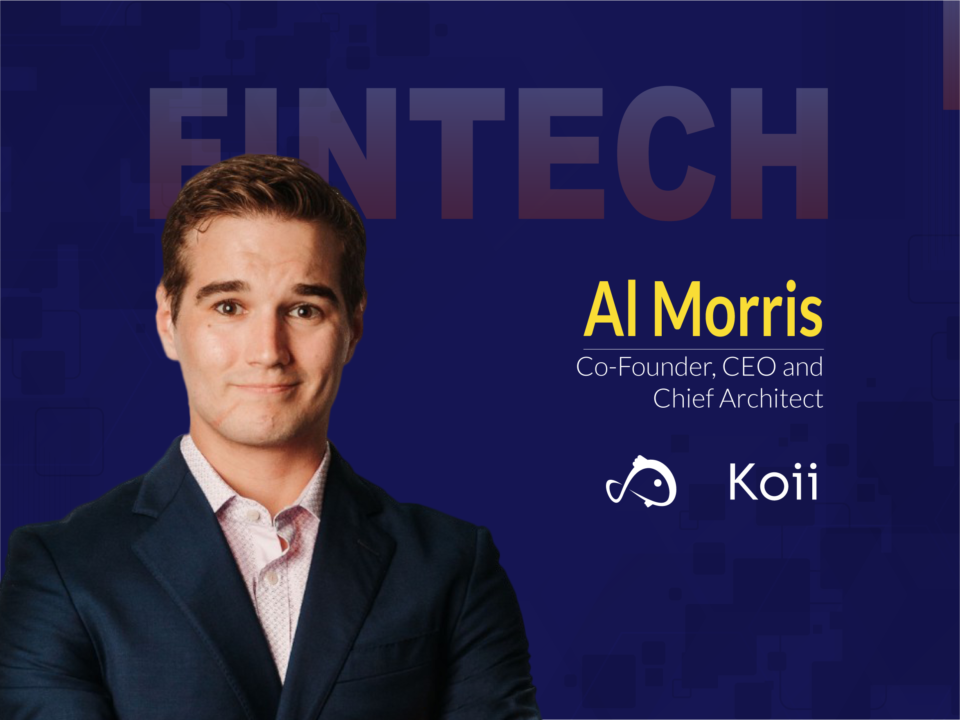Please tell us about your career in crypto so far.
In 2016 I got my start in blockchain helping organize Ethereum and Bitcoin meetups in Chicago driven by my interest in using micropayments to facilitate peer-reviewed web content. At one meetup, I ran into Taylor Gerring, one of the original eight founders of Ethereum, and he recruited me to help run a YouTube channel called blockchain.wtf, which was dedicated to providing digestible content about web3 and decentralization.
Later, we formalized this organization and launched the Blockchain Institute, which educated over 3000 students via weteachblockchain.org, and gave me my first glimpse into the difficulties of designing robust and scalable decentralized systems.
In 2020, Kayla Kroot, Creative Director and Co-Founder of Koii, and I built Koii to follow through on that work by making it easy for anyone, anywhere, to get involved in building the decentralized future.
Koii and Idexo have just introduced an advanced new form of cross-chain bridge technology. Can you explain the bridge, how it was built, and how it will be used in the Koii Network?
In 2022 alone, over $3 billion was lost to bridge hacks, typically because of a lack of security and a small number of validators controlling the funds. The Idexo bridge marks a significant improvement in bridging technology, as it will use tens of thousands of Koii nodes, which are personal home computers, as validators, thereby distributing not only the risk but the profits as well.
Also Read: Global Fintech Interview with Ksenia Yudina, CFA, Founder and CEO at UNest
Koii allows users to earn passive income. Could you tell our readers how it is possible?
When I first got into the industry, mining crypto on a personal computer was not only possible but quite profitable. This is because the networks were smaller and required fewer computing resources. Koii Tasks are micro-consensus groups and allow individuals to mine tokens for completing specific valuable compute jobs, many of which can be done on a home computer as small as a Chromebook. Our original vision was to allow and help anyone in the world to host the internet while they are sleeping. In addition to this, any content hosted through Koii is eligible for attention rewards, meaning that community members mine new tokens every time their content is viewed.
Super Wallet, SDK and Serverless hosting are a few tech terminologies. Could you please walk through what these are and how they are connected for our readers?
The Finnie “Super Wallet” is designed to manage keys for many different blockchains, allowing Koii Community members to hold tokens in all sorts of decentralized networks. This is especially helpful when running a Koii Node, which provides cloud computing resources via serverless hosting. The Koii SDK, or software development kit, ties these pieces together and provides a common foundation for developers to build on no matter what blockchains or underlying services need to be integrated.
Also Read: Global Fintech Interview with Sarah Biller, Co-Founder at FinTech Sandbox
Can you talk about some of the most innovative fintech solutions today that, according to you, are set to create new benchmarks for blockchain/web3?
The most exciting area that I’m focused on right now is called Infrastructure Finance (InfraFi, for short) which provides a new foundation for public goods funding. Things like historical records, encyclopedia articles, and large scientific databases require storage, computing, and many more ongoing costs. InfraFi combines decentralized finance primitives with automated purchasing to create stable endowments for storage, computing, and other digital services. In these models, a pool of capital can be set aside to ensure that content is not lost or deleted, and automated systems like Koii Nodes can be used to safeguard humanity’s most precious knowledge assets.
Also Read: Global Fintech Interview with Leanne Holder, CEO at Giving To Services SVS Token
What are your future predictions for the evolution of DeFi?
Right now, DeFi is in its early stages and is mostly related to trading activity on crypto exchanges. Margin trading, arbitrage, and similar activities require lending but don’t even come close to the utility of the commodities exchanges and options markets we find in traditional finance. The next step for crypto-based primitives will be the integration with real-world services, like the InfraFi I mentioned earlier. As these new integrations come online, we will see a stabilization in demand for DeFi tools and a generational shift in how money is managed.
Thank you, Al ! That was fun and we hope to see you back on globalfintechseries.com soon.
[To share your insights with us, please write to sghosh@martechseries.com]
After graduating from Queen’s University with a Bachelor of Applied Science in Robotics Engineering, Al co-founded https://weteachblockchain.org where he helped others learn and love blockchain. Koii was founded by Al in August of 2020 and has been moving fast ever since, most recently Koi made the CoinList Seed Spring 2021 Batch. Al is a captivating speaker and has done previous talks on the OpenWeb creators & communities summit as well as Diffusion Digital in April 2021.
With the goal of realizing the full potential of decentralized ledgers, Koii is creating the infrastructure necessary to facilitate this revolution by building tools including dApp templates entirely coded in JavaScript, decentralized permanent storage, attention rewards, and a node network that ensures the autonomy of developers and creators, and allows them to maintain full ownership of their content.

